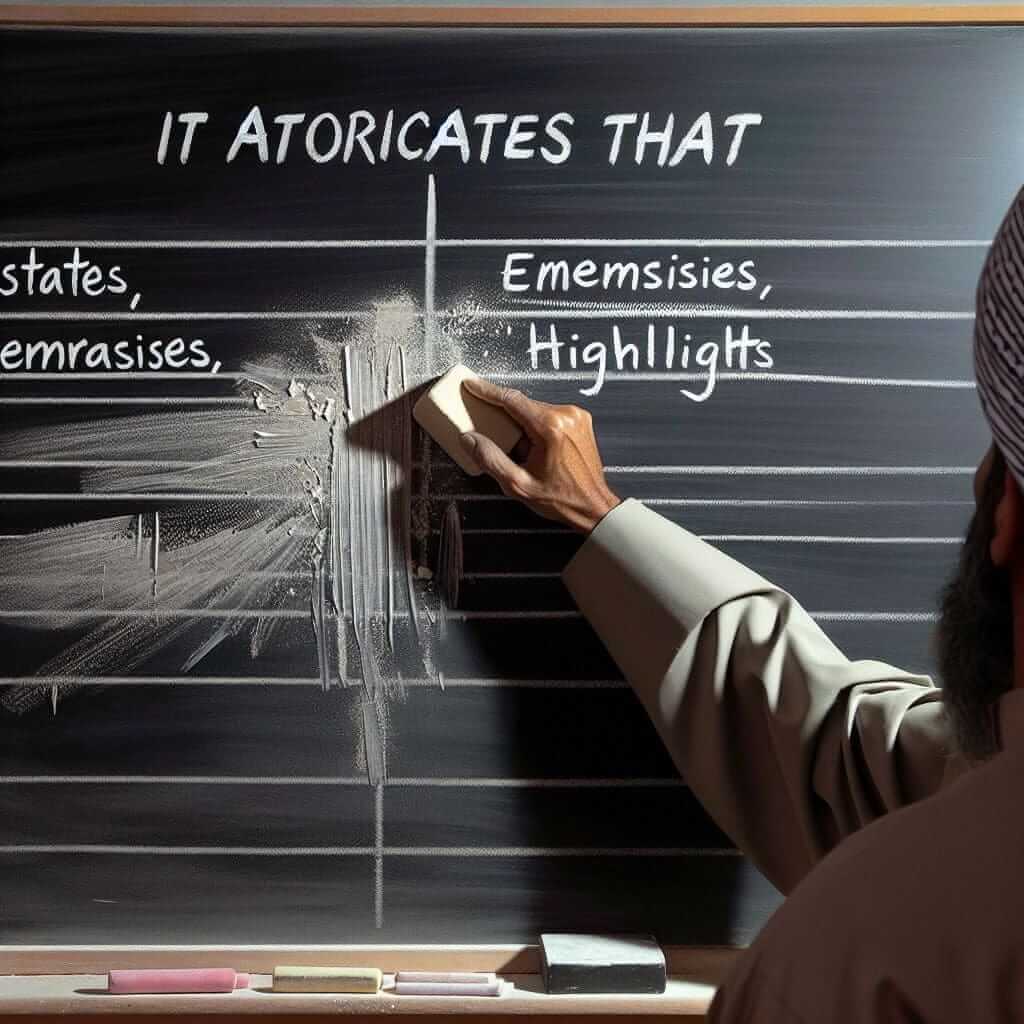The phrase “it articulates that” might seem like a sophisticated way to express yourself in IELTS writing. However, is it really necessary or even beneficial? Native English speakers rarely use this phrase in everyday speech or writing. Aiming for a more natural and concise style will help you communicate more effectively and achieve a higher IELTS score.
Let’s examine a few examples:
Example 1:
- With ‘it articulates that’: The report it articulates that climate change poses a significant threat to coastal communities.
- Improved: The report states that climate change poses a significant threat to coastal communities.
Example 2:
- With ‘it articulates that’: In his speech, the president stressed the need for unity, and it articulates that the nation must work together to overcome its challenges.
- Improved: In his speech, the president stressed the need for unity, emphasizing that the nation must work together to overcome its challenges.
Analysis:
In both examples, “it articulates that” is wordy and redundant. Direct verbs like “states,” “emphasizes,” or “highlights” convey the same meaning more clearly and concisely.
Understanding “It Articulates That” and Its Alternatives
While “it articulates that” is grammatically correct, it often sounds forced and unnatural in English. This construction uses the pronoun ‘it’ without a clear referent, leading to potential ambiguity. Instead of relying on this phrase, explore these effective alternatives:
Expressing Opinions and Arguments:
- States: This report states that the global economy is in a state of flux.
- Argues: The author argues that education is the key to social mobility.
- Suggests: The data suggests that there is a correlation between exercise and improved mood.
- Maintains: The historian maintains that the treaty was a turning point in international relations.
Emphasizing Points:
- Highlights: This paragraph highlights the importance of sustainable development.
- Emphasizes: The Prime Minister emphasized the need for immediate action on climate change.
- Stresses: The article stresses that prevention is better than cure when it comes to health.
Conveying Information Clearly:
- Explains: The passage explains the process of photosynthesis in detail.
- Describes: This section describes the geographical features of the region.
- Demonstrates: This example clearly demonstrates the principles of supply and demand.

Avoiding Common Mistakes
Redundancy: Be mindful of repetition. “It articulates that” often repeats information already implied in the sentence.
Word Choice: Opt for strong verbs that directly convey your meaning. Avoid using overly complex vocabulary just for the sake of it. Natural and concise language is key.
Clarity: Ensure that your sentences are easy to follow and understand. Avoid convoluted structures that might confuse the reader.
Achieving a Band 7+ Score
To score highly in IELTS writing, you need to demonstrate a wide range of grammatical structures and vocabulary. However, this doesn’t mean using unnecessarily complex language. Here’s how to use synonyms effectively:
- Variety and Precision: Choose synonyms that fit the context and convey the precise shade of meaning you intend. Don’t just use a thesaurus to find the longest or most obscure word.
- Natural Language: Your writing should sound fluent and idiomatic. If a synonym sounds awkward or forced, it’s best to stick with a simpler word or phrase.
Conclusion
While “it articulates that” might seem like a sophisticated phrase, it’s not commonly used by native English speakers. It’s best to avoid it in your IELTS writing. Instead, focus on using a variety of strong verbs and clear, concise language to effectively communicate your ideas. Remember, clarity and natural expression are more impressive than using unnecessarily complex vocabulary or structures.